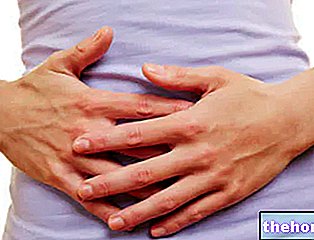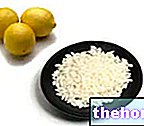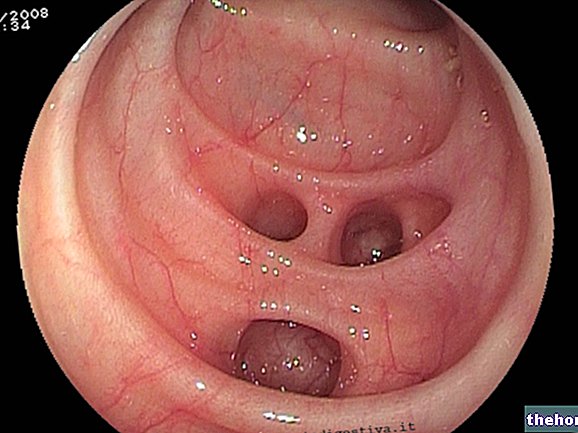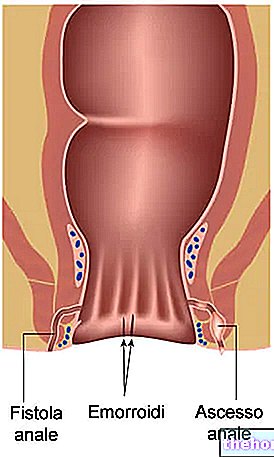Leaky bowel syndrome (Leaky Gut Syndrome) is a term recently introduced, but already particularly dear to many health professionals, especially those who are more attentive to the diet-disease relationship and to the possible remedies offered by food supplements and alternative medicines.

All this would trigger an exaggerated immune response, responsible for the aforementioned diseases; in this regard, the more the professional deviates - by conviction or interest - from the so-called "official medicine", the greater the number of disorders and pathologies that he will tend to attribute to the "dripping bowel syndrome. In fact, in addition to explaining with this hypothesis symptoms such as headaches, joint disorders, fatigue, dermatitis and digestive problems, some professionals even go so far as to attribute them major diseases, such as systemic lupus erythematosus, inflammatory bowel disease, celiac disease, multiple sclerosis, autism, rheumatoid arthritis, gluten ataxia and Hashimoto's thyroiditis.
Intestinal barrier
The intestine has the main task of completing the digestion of food and absorbing the nutrients essential for health into the bloodstream.
Beyond this well-known digestive function, the intestine also represents a very important dividing line between the external and internal world, a sort of barrier entrusted with the task of distinguishing all that is useful or harmless from what is dangerous. The intestine, in fact, must prevent pathogenic microorganisms, parasites, toxins and food antigens from entering the bloodstream.
The barrier function of the intestine is guaranteed by the presence of numerous defensive lines:
- intestinal mucosa: the intestinal epithelium is furrowed by numerous finger-shaped protrusions, known as intestinal villi, very important for increasing the absorbent surface of the organ. The cells that make up the intestinal villi are in turn equipped with digitiform protrusions called microvilli; moreover, very important to explain the syndrome of the "leaky bowel", they are tightly united the one to the other from tight junctions and desmosomes, which are intended for seal the intercellular space preventing the penetration of unwanted substances and the escape of useful ones that have just been absorbed;
- immune system: in addition to hosting more than half of the body's immune cells, the intestine is equipped with a large number of lymph node stations;
- digestive enzymes: of intestinal or hepatic origin, they are important for digesting food proteins with allergenic potential;
- natural antibiotics: such as defensins, they are poured into the intestinal lumen to fight a wide spectrum of bacteria, both Gram positive and negative;
- mucus: viscous substance capable of facilitating the progression of food and trapping pathogens, which will then be expelled through the faeces thanks to the peristaltic movements;
- intestinal flora: under the close surveillance of the immune system, saprophytic or symbiotic bacteria compete with pathogenic fungi and bacteria for nourishment and adhesion sites to the intestinal mucosa.
Causes
The integrity of intestinal cells would be undermined by the persistence of a chronic inflammatory state, linked to problems of poor digestion, high stress and many other factors.
Among the possible causes of the dripping bowel syndrome there would be in particular: food excesses (with particular reference to the abuse of sugars, refined cereals and derivatives), food pollutants and toxins (eg mycotoxins), prolonged stress, antibiotic or cortisone therapies prolonged, laxative abuse, dysbiosis and small bowel contamination syndrome.
Complications
The increase in intestinal permeability can have very important repercussions:
- the hyperactivation of the intestinal immune system feeds the local chronic inflammation that gave rise to the increased permeability; this creates a vicious circle that promotes a further worsening of the situation;
- the hyperactivation of the intestinal immune system can have repercussions even at a distance, since the immune cells activated in the intestine migrate into the systemic circulation and reach other organs, where they can damage healthy tissues, promoting inflammatory and / or autoimmune phenomena;
- the entry into the bloodstream of immunogenic substances can trigger an immune response even in distant organs from the intestine, triggering inflammatory and / or autoimmune phenomena;
- if the immune system's ability to distinguish harmful antigens from those that are not is lost, the immune response could turn to harmless components of the food or to "friendly" bacteria, triggering allergic phenomena or even chronic inflammatory bowel diseases.
Symptoms
Symptoms such as depression, anxiety, hyperactivity syndrome, joint and muscle pain, headaches, chronic fatigue, intestinal disorders (irritable bowel, constipation or diarrhea) and thyroid changes (hypothyroidism) are generally attributed to the dripping bowel syndrome.
Treatment
The treatment of the dripping bowel syndrome is essentially based on dietary correction, possibly assisted by particular food supplements.
As anticipated, on the dietary front, particular emphasis is given to limiting the consumption of refined sugars and cereals, especially those containing gluten but not only. It is also necessary to limit the consumption of irritants, such as spices, alcohol or foods subjected to particularly long cooking and / or high temperatures (grilling, frying, roasts, sautées, etc.). Legumes are also often not recommended. Instead, the consumption of foods such as meat broth (particularly rich in collagen and its precursors), yogurt and fermented milks (such as kefir), seeds and dried fruit is encouraged, while for fiber it is necessary to evaluate individual tolerance .
With regard to food supplements, glutamine has proved particularly useful, as it is capable of improving the functionality of the intestinal and immune barrier. Collagen supplements are also potentially useful, including precursors or substances that stimulate their synthesis (eg proline and glycine, vitamin C and natural extracts such as centella).
Moving on to phytotherapy, the extracts traditionally used for the healing of ulcers and wounds (healing), such as licorice root, aloe gel, echinacea and centella asiatica, could be particularly useful. Potentially useful also extracts with anti-inflammatory action, like those of Boswellia and Curcuma.
Finally, with regard to probiotics, it is also necessary to consider the risk that these can penetrate the bloodstream due to the increased intestinal permeability.




























